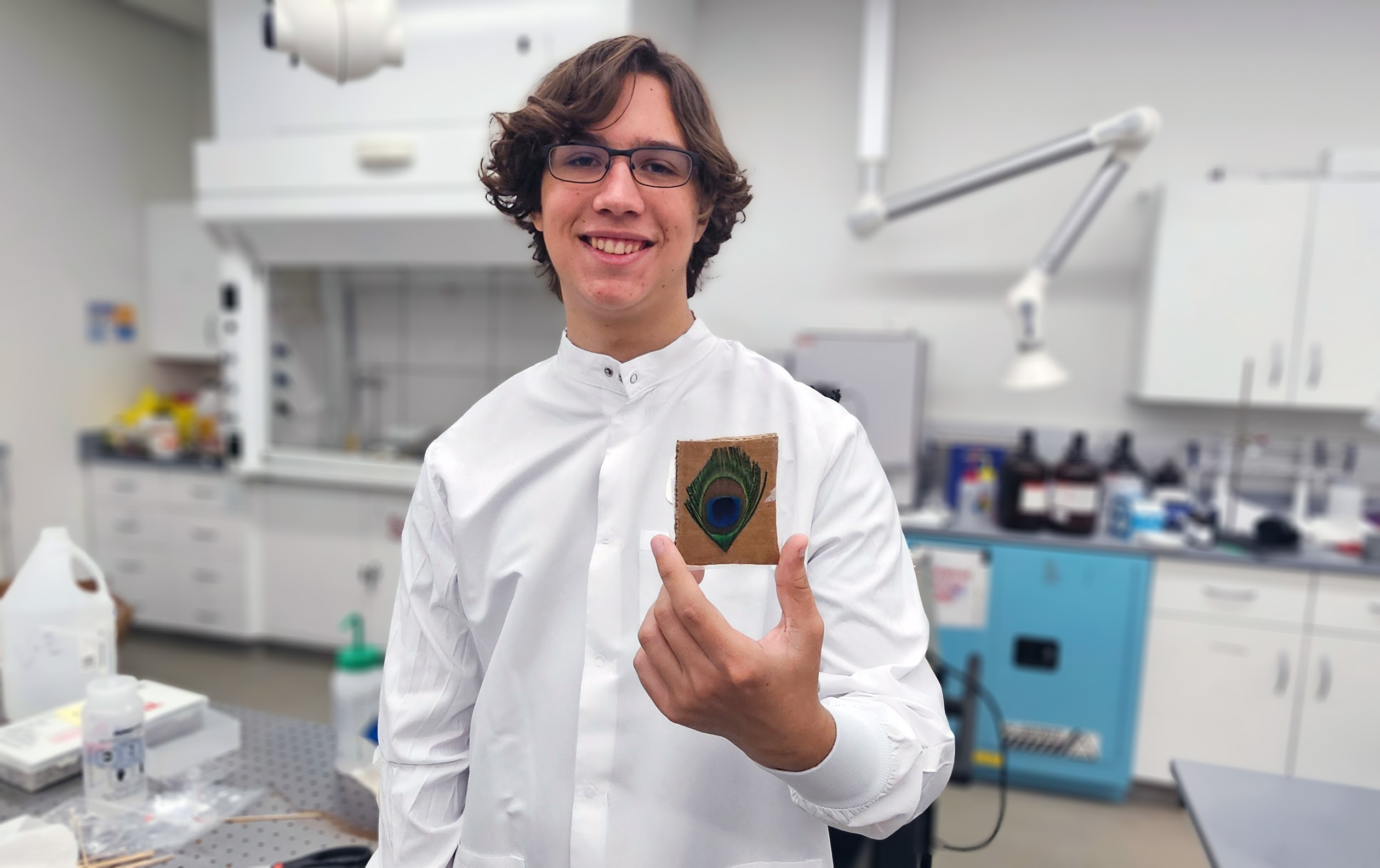
Anthony Fiorito, a senior engineering physics major at Florida Polytechnic University, was published as first author of a study that found that when infused with a specific dye, peacock feathers can emit a laser light. He conducted the research with Dr. Nathan Dawson, associate professor of engineering and physics.
Florida Polytechnic University senior Anthony Fiorito has captured national attention in the scientific community with groundbreaking research revealing that peacock feathers can emit precise laser light.
Fiorito, an engineering physics major, is the first author of a study that has been spotlighted by leading publications including Science, Ars Technica, Interesting Engineering and MSN. The research was initially published in the journal Scientific Reports.
“The attention has been surprising, but it’s because the research is really cool,” said Fiorito, who worked under the guidance of Dr. Nathan Dawson, associate professor of engineering and physics at Florida Poly.
The research shows that when vibrant peacock tail feathers are infused with a special fluorescent dye, their tiny natural structures allow them to emit laser light at specific, consistent colors.
“While people will not be building practical lasers out of peacock feathers anytime soon, we did prove the concept,” Fiorito said. “We hope that our group and others may continue researching biological material for applications in lasers and optics.”
The discovery that the laser light is not random was especially important.
“This work reveals microscopic resonators in complex biological media, and identifying and exploiting such hidden structures could lead to advances not only in photonics but also in sensitive medical diagnostics, where detecting subtle structural changes matters,” said Dawson, whose research focuses on laser emission and biological materials.
Fiorito’s research journey began with a bold step during his freshman major orientation. After Dawson described his research interest, Fiorito took action.
“I went up to Dr. Dawson and asked, ‘Can I work for you?’ and told him I was also in his class,” Fiorito said.
The moment made a lasting impression on Dawson that carried through their work.
“Anthony was well-informed and eager to learn more, always pushing beyond the standard curriculum,” Dawson said. “He is an exceptional student who shined in the lab with his diligence and unbiased approach to data.”
With relentless determination and laser-like focus, Fiorito plans to pursue a Ph.D. in physics.
“Anthony is a rock star. His contributions have been outstanding, and I expect great things from him,” Dawson said.
In addition to Fiorito and Dawson, co-authors of the paper are Florida Poly lab technician David Sheffield; Dr. Hengzhou Liu, visiting assistant professor of physics; and Erfan Nasirzadeh Orang, a student at Youngstown State University in Ohio.
Contact:
Lydia Guzmán
Director of Communications
863-874-8557